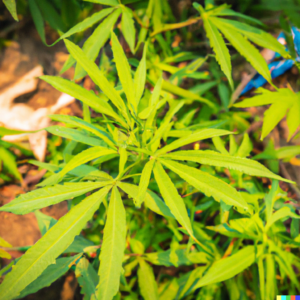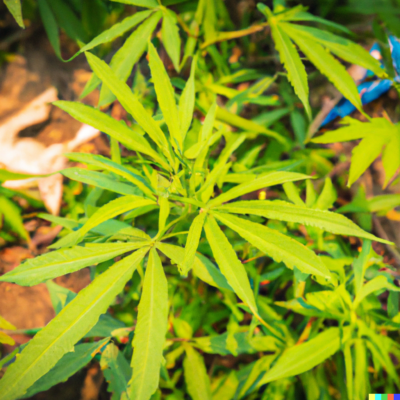Cannabis has been part of Thai culture for centuries. The plant has been used for medicinal, spiritual, and recreational purposes. However, for the last century, the Thai government has adopted strict drug laws that banned cannabis and other substances. Nevertheless, the situation changed in 2018, when Thailand became the first country in Southeast Asia to legalize medical cannabis. This article provides an overview of the legal status of cannabis in Thailand and its implications.

History of Cannabis in Thailand
Cannabis has a long history in Thailand. The plant has been used in traditional medicine, cuisine, and spiritual practices for centuries. Thai people used to consume cannabis in various forms, such as tea, balm, and smoked in pipes. In the early 20th century, the Thai government passed strict drug laws that banned cannabis and other substances. The government also initiated an anti-drug campaign that aimed to eradicate the use of cannabis and opium. The campaign had a significant impact on Thai society, as it led to the arrest and imprisonment of thousands of people.
Legalization of Medical Cannabis in Thailand
In 2018, the Thai government passed a landmark law that legalized medical cannabis. The law allows the use of cannabis for medical purposes, such as alleviating pain, nausea, and other symptoms. The law also permits the cultivation, production, and distribution of medical cannabis products by authorized entities. The law is a significant departure from the previous drug policies and reflects the growing global trend towards cannabis legalization.
The legalization of medical cannabis in Thailand has several implications. Firstly, it opens up new opportunities for medical research and innovation. Thailand has a long tradition of herbal medicine, and cannabis could become a valuable addition to the country’s medical arsenal. Secondly, it provides relief for patients suffering from chronic pain and other debilitating conditions. Medical cannabis has been shown to alleviate pain, reduce anxiety and depression, and improve the quality of life for patients. Finally, it could stimulate economic growth and job creation in the cannabis industry. The demand for medical cannabis products is growing, and Thailand could become a major player in the global market.
Regulations on Medical Cannabis in Thailand
The legalization of medical cannabis in Thailand comes with strict regulations. The government has established a regulatory framework that ensures the safety, quality, and efficacy of cannabis products. The regulations cover various aspects of the cannabis industry, such as cultivation, processing, and distribution.
To obtain a license to produce or distribute medical cannabis, entities must meet several requirements. Firstly, they must have a proven track record in the pharmaceutical or medical industry. Secondly, they must have the necessary equipment, facilities, and personnel to produce high-quality cannabis products. Thirdly, they must comply with the safety and quality standards set by the government. Finally, they must have a clear business plan that outlines their objectives, strategies, and financial projections.
The regulations also stipulate that medical cannabis products must meet certain standards. For example, they must contain a minimum level of THC and CBD, and they must be free from contaminants and adulterants. The regulations also require that medical cannabis products are labeled and packaged appropriately and that they are distributed through licensed channels.
Implications of Cannabis Legalization in Thailand
The legalization of medical cannabis in Thailand has had significant implications for the country’s drug policies and society. Firstly, it challenges the traditional view that cannabis is a harmful drug that should be banned. The legalization of medical cannabis recognizes the plant’s medicinal properties and provides a more nuanced approach to drug policy. Secondly, it could reduce the social and economic costs of drug prohibition. The prohibition of drugs has led to the criminalization of thousands of people and the rise of organized crime. The legalization of medical cannabis could alleviate the burden on the criminal justice system.
The legalization of medical cannabis could also stimulate economic growth and job creation in the cannabis industry. The demand for medical cannabis products is increasing, and Thailand could become a major player in the global market. Additionally, the legalization of medical cannabis could promote research and innovation in the medical field. Thailand has a long tradition of herbal medicine, and cannabis could become a valuable addition to the country’s medical arsenal.
However, the legalization of medical cannabis also comes with challenges. The regulations on medical cannabis production and distribution must be strict to ensure the safety, quality, and efficacy of cannabis products. The potential for abuse and diversion of medical cannabis must also be addressed. Overall, the legalization of medical cannabis in Thailand has significant implications for drug policies, healthcare, and the economy.
find all the Shops, Dispensiries, farms, clinics and more in our directory
